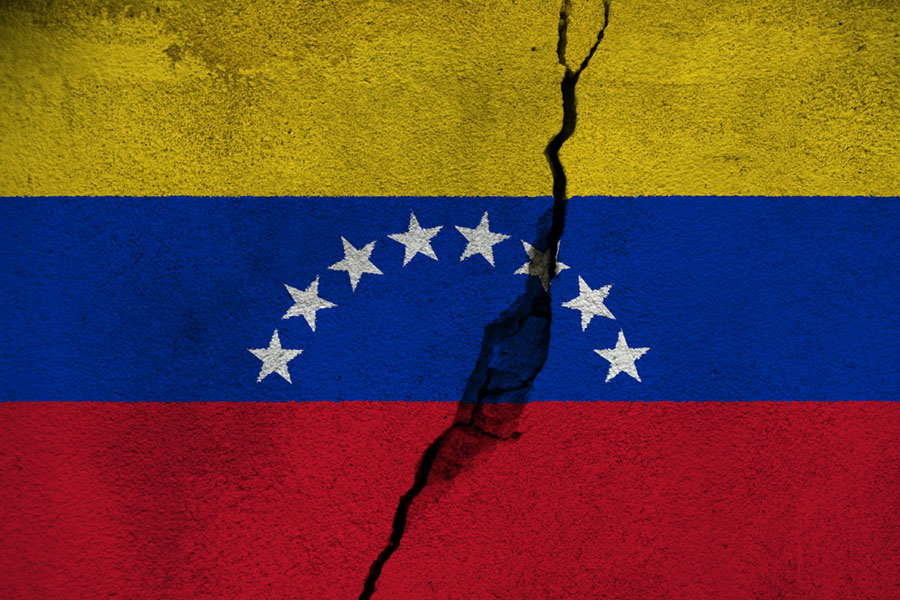
The Biography of Hugo Chavez
Biography of Hugo Chavez: Chavez Writing a New History of Relations Based on Respect for Sovereignty.
On July 28, 1954, Hugo Rafael Chavez Frias was born in Sabaneta, in the western state of Barinas Venezuela. According to the biography of Hugo Chavez, he was born the son of two school teachers, living in poverty.
From an early age Chavez was an outstanding baseball player and it was this game that won Chavez a scholarship to the prestigious Venezuelan Academy of Military Sciences.
After graduating with a degree in Military Science and Engineering, Chavez joined the army.
The charismatic young man became popular with his fellow soldiers as well as superiors and was promoted quickly, eventually coming to head a paratrooper unit.
In the army Chavez came to know and be appalled by the corruption within the military and all of the Venezuelan state institutions. Always well read, he began to read Marxist works;
Although his strongest influence was the Pan-American Venezuelan Simon Bolivar.
Chavez disseminated the ideas he read and his own anti-corruption philosophy within the army and formed a clandestine organization, the Bolivarian Revolutionary Movement.
This movement aimed at opposing corruption within the army ranks and in Venezuela.
The Rise of Hugo Chavez
A turning point for Chavez came in 1989 when he was deployed to put down food riots that were provoked by the desperate economy in Caracas with orders to shoot at rioters.
Three years later, in 1992, he would be imprisoned in a failed attempt to overthrow the government of Carlos Andres Perez.
When Chavez was captured his co-conspirators launched attacks on government facilities throughout the nation and Chavez was allowed to go on television in order to prevent the bloodshed.
His brief speech that called for a peaceful retreat “for now,” catapulted him to celebrity with “for now” graffiti immediately appearing on city streets.
Released from prison after two years, a new chapter began in the biography of Hugo Chavez. Chavez launched the Fifth Republic Movement and announced his run for President.
On December 6, 1998, with 56% of the vote, Chavez was elected President of Venezuela and a radical program to take Venezuela back for Venezuelans would initiate, to the chagrin of the U.S. elites that had long turned substantial profits from Venezuela’s natural wealth of minerals and in particular, petroleum.
The Poor Call for Chavez
In April of 2002, Chavez made history as the first elected President in Latin America to be opposed in a coup and restored to power.
The popular outcry of the Venezuelan poor that poured down from the shantytowns of the Caracas hillsides to insist on his reinstatement shouldered him back to the presidency within 48 hours of the coup.
Chavez has won democratic elections with 54% in 1998, and 60% on 2 later occasions.
He formed a constituent Assembly in 1999 to promote a participatory process to draft a new Constitution and has formed thousands of local community councils with control over resources for community investment.
In 2004 he submitted himself to and easily survived a recall election provoked by the former economic elite that control much of Venezuelan television.
His effort to reform the new Constitution in 2007 failed and Chavez quickly recognized his first ballot box defeat. So why is Chavez decried as a dictator by a U.S. bi-partisan consensus?
Bush’s Effort Led by the Banksters Has Failed so Far
Having nationalized oil and gas, mineral wealth and other industries in order to lift Venezuela out of the IMF-imposed poverty of the past, he has become U.S. public enemy number 1 in Latin America, a bigger threat perhaps than even retired President Fidel Castro of Cuba, whose socialist example has resisted 50 years of economic blockade, harassment and covert attacks.
Vast quantities of resources no longer in the service of U.S. based corporations are today in function of lifting Venezuelans out of poverty.
Chavez has broken Venezuelan dependency on the international banks and is an outspoken proponent of socialism, putting human development at the center of society rather than the profit incentive of capitalism.
Simply put he’s a bad example against the dominant exploitative system that the U.S. seeks to masquerade as progress to its citizens and other ignorant people around the globe.
Despite relentless efforts in Washington to put an end to this blasphemous example of hope which shakes the corporate altar, George W. Bush will be forced to leave the White House having failed in his drive to end the biography of Hugo Chavez prematurely.
Challenging for Mutual Respect & Understanding
Hugo Chavez, for his part, is preparing to start the next chapter in the new history of the Americas, based on a socialist pan-Americanism of Bolivar “the liberator.” Following Bolivar’s example of building unity, the Bolivarian Revolution continues to consolidate in Venezuela and beyond.
Through the Bolivarian Alternative for Latin America, an economic alternative to dependency on the U.S. is spreading.
This alternative is based on mutual relations and solidarity among sister governments and peoples, seeking to promote national and regional development rather than continuing to stoke the never satisfied furnace of U.S capital.
The time for a new globalization is arriving and reaching to both the north and south from Venezuela. Emerging left parties continue an electoral domino effect that shows no sign of slowing in a mounting challenge to U.S. domination.
Hugo Chavez is at the head of this offensive to challenge the U.S. to build a new relationship with the south, based on mutual understanding and respect.

 My First Amazing Ayahuasca Experience
My First Amazing Ayahuasca Experience  Pine Needle Tea
Pine Needle Tea  The REAL Controllers of Humanity: The Papal Bloodlines
The REAL Controllers of Humanity: The Papal Bloodlines  Is it Global Warming or Cooling?
Is it Global Warming or Cooling?  Gun Rights and Obama Examined
Gun Rights and Obama Examined